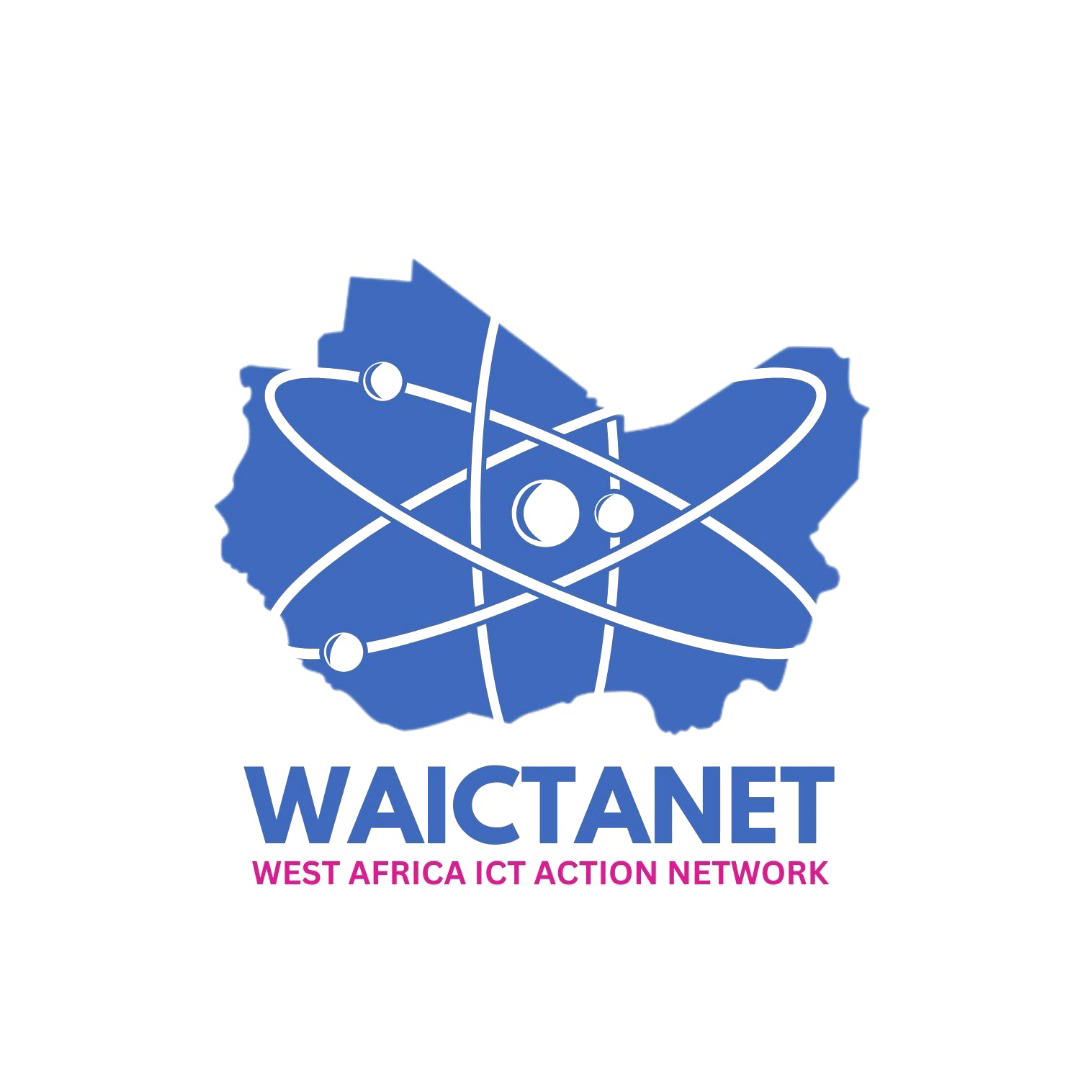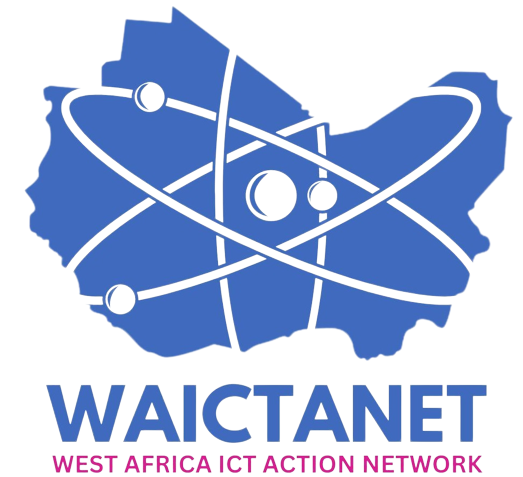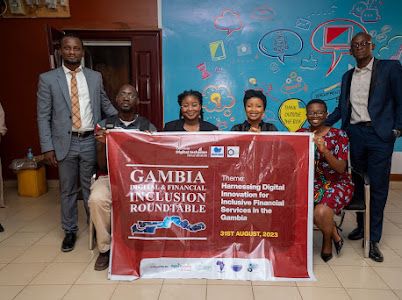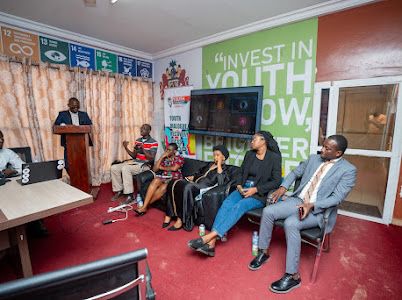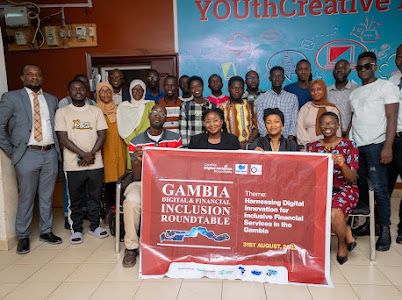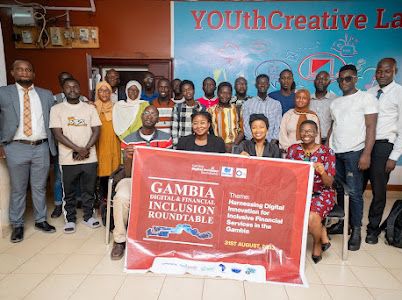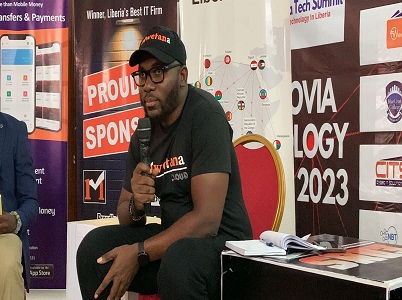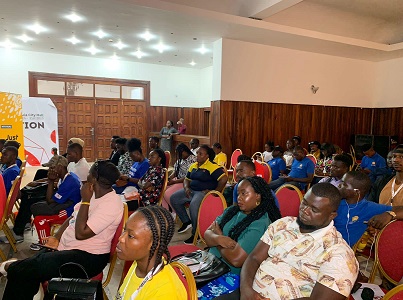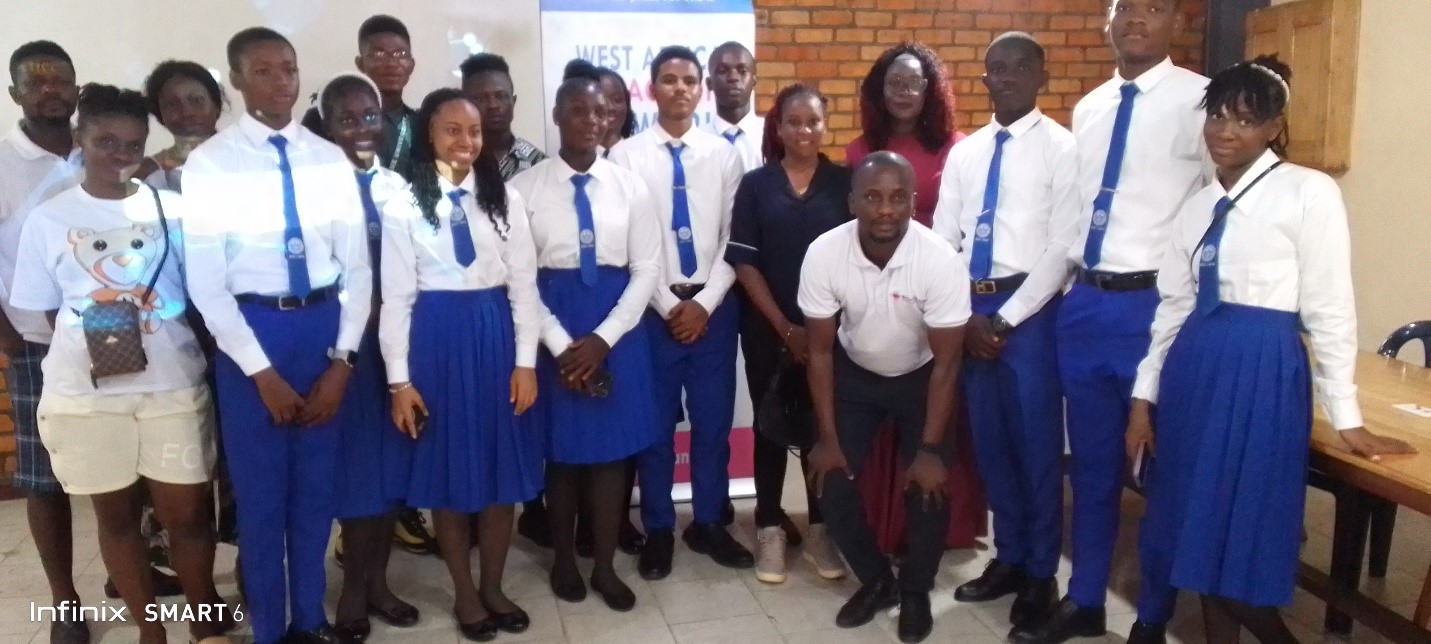WAICTNET Empowers Liberian Students on Inter-Based Fraud & Attack
By: Samuel G. Dweh (Freelance Development Journalist)
The Liberia Office of the West Africa ICT Action Network (WAICTNET), a cyber-crime detection and prevention Institute, has empowered Liberian students on how to detect and prevent Internet-related fraud and bullying (attack) Student present at the training session came from the B.W. Harris Episcopal High School, University of Liberia, African Methodist Episcopal University, African Methodist Zion University, and United Methodist University. Persons not in school were also part of the empowerment Workshop. Training date was Wednesday, November 8, 2023, while the training venue was iCampus, upper Carey Street, Monrovia.
Presentations during the empowerment session.- Mr. Peterking Quaye, a Liberian expert in cyber-crime detection and prevention, Executive Director WAICTNET-Liberia’s Office. The second person was Ms. Maria Dorris Dowee, age 30, at French-owned Orange Telecommunications Company.
Portions of Mr. Quaye’s Remarks were: “At the West Africa ICT Action Network, we believe in the transformative power of knowledge. Our mission is to equip individuals and institutions with tools and insights they need to navigate the digital world confidently, know that their date is protected and their online interactions are secure….Let us leave this event not only with knowledge, but with a commitment to advocate for digital safety…and for our government to prioritize the critical aspects of digital rights”
For his Presentation, he drilled participants through terminologies used in the ICT world and provided definition of each terminology. Some of the technical digital jargons he used were: “Encryption”, “Virtual Private Network (VPN)”, and “Secure Sockets Layer (SSL)”
He defined Encryption, the main jargon of the Global ICT Day (2023) as the “processing of data into decodable form”. “By owning or having a SmartPhone, that can connect to the Internet, you are susceptible to online fraud or bullying. And you today’s posts can be used against you tomorrow,” Mr. Quaye informed, or reminded, the participants.
He stated three leading methods for Internet-based navigators to prevent their being caught in the dragnet of cyber-criminals or attackers. “When you are online, always treat your data with utmost confidentiality. Don’t share your sensitive information with any stranger asking you to click on a link to have access to any financial or educational benefits. Another way of dodging online fraudsters or attackers confirming the source of the sent strange link through Google.com or any of the other globally known and respected social media portals. The third method is, browse with integrity by not sharing your nude photo to white man or white woman asking it as condition of sending for you for marriage,” the Liberian cyber-crime detection expert explained. “The most sophisticated method is to use a password of alphabets, numbers, and symbols,” he said. He concluded his Presentation with asking for questions or comments from members of the audience.
“Does Liberia have a Cyber-crime law?” enquired student Austin D. Soper, a member of the B.W. Harris Episcopal High School present. “Liberian does not have any law on that now. The Country signed on to the Malabo Convention against Cyber fraud or attack, but the Country has not domesticated that protocol into law yet,” Mr. Quaye responded to the student’s question.
Another B.W. Harris High School student, Hillel V. Harris, presumed the Liberian Government’s “challenge” of enforcing any Internet-related law forcefully and impartially, and added that it will be similar to the Government’s action on other laws in existence. “That makes ordinary Liberians more vulnerable to criminals during our time!” Mr. Quaye reacted. “But, advocacy by those at this event can change things for the better,” he added. For her Presentation, which lasted less than twenty minutes, Ms. Maria Dorris Dowee started with inspiring the audience on her journey to “professional life”.
“During my high school days, I developed interest in Engineering on advice from female professional Engineers I interacted with. For my university education, I chose Electronic Engineering. Now, I am a member of the Liberia Society of Women Engineers,” she narrated. She said many Liberian girls and women become prey to male online fraudsters or attackers because of their little or no respect to their womanhood. “Many of my female colleagues share their nude or naked photos to foreigners who request them as condition of financial assistance or for marriage. Some Liberian men do that, too. Women in this hall, don’t post your nakedness photo to any man for anything—money or marriage,” she advised.
At the end of the empowerment session, WAICTANET’s Executive Director promised Certificates of Participation, days after the session, for each of the students that attended the 2023’s edition of the Global Encryption Day observance in Liberia
